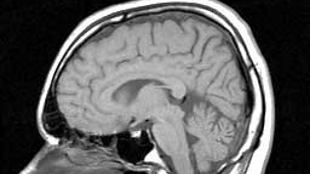 WIKIMEDIA COMMONS, THEBRAIN
WIKIMEDIA COMMONS, THEBRAIN
A new drug aimed at treating Alzheimer's disease (AD) may have deleterious side effects, according to the scientist who discovered the compound's molecular target. Northwestern University cell and molecular biologist Robert Vassar warns that a drug designed to inhibit BACE1, an enzyme that aids in the development of the amyloid plaques that are characteristic of AD, may also stop the enzyme from performing a crucial neuron-mapping function in the brain. Vassar's group cloned and characterized BACE1 in 1999.
Vassar recently showed that mice devoid of BACE1 had olfactory neurons that were improperly wired to the olfactory bulb. This is worrying, Vassar said, because in the hippocampus, as memories are formed, neurons are continually reborn and connections reconfigured, making BACE1's organization role hugely important. Thus, drugs ...





















